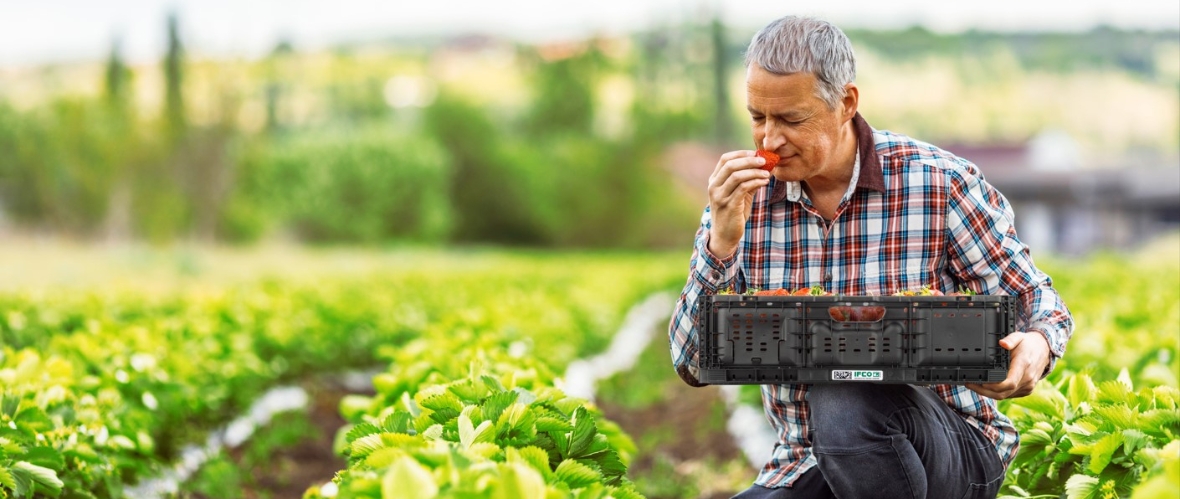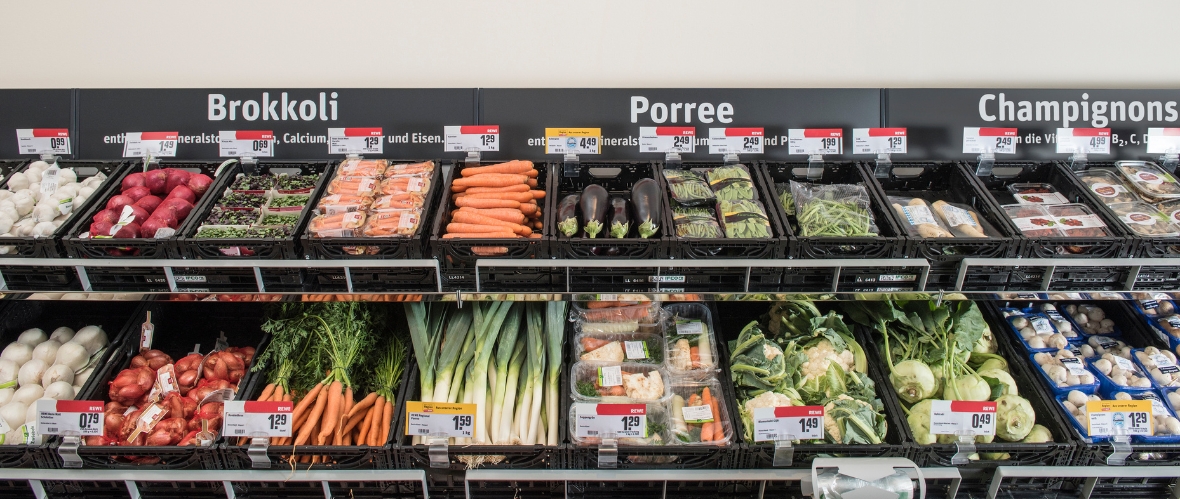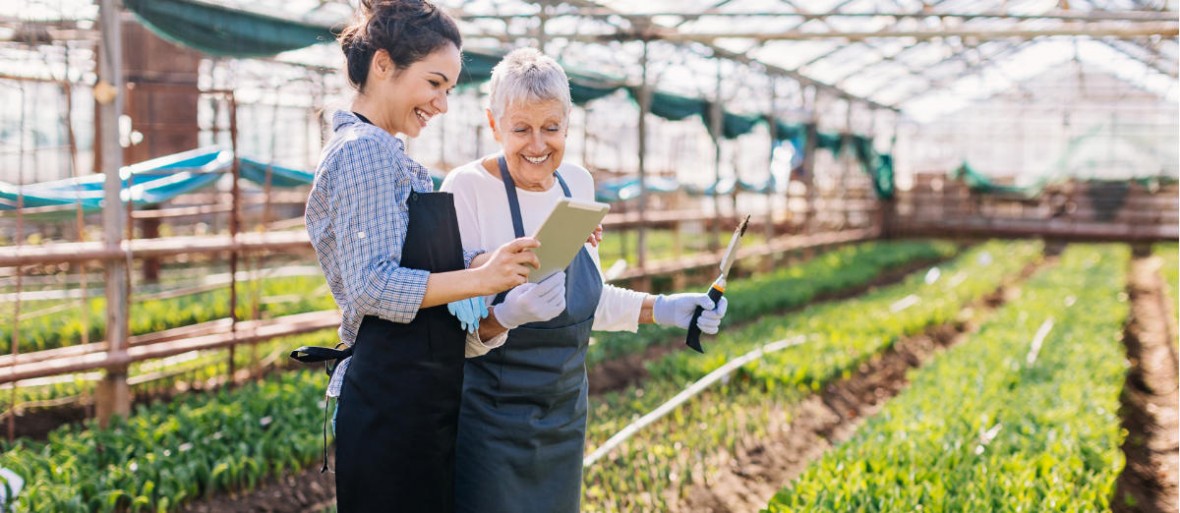The emerging innovations in sustainable food packaging.

As a global champion of sustainable packaging, IFCO is exploring what will be important in 2024 and beyond. We are excited to share our insights into the key trends that will define the sustainable packaging industry in the years to come.
Our take on the trends for 2024 and beyond is a testament to our commitment to staying ahead in the ever-evolving world of sustainable packaging. In this transformative journey, various factors such as regulations, business resiliency, and consumer desirability play pivotal roles, making a compelling case for the adoption of packaging circularity, particularly when considering environmental impacts. At the same time, the packaging industry is undergoing a digital revolution to enhance efficiency, reduce waste, and promote a more sustainable supply chain.
We have broken down the most important trends in our industry that are poised to promote the adoption of more sustainable solutions. Here is our take on what’s coming in 2024 and beyond.

Urgency of climate action and containing plastic waste
One-way packaging has a seriously negative impact on the environment. The industry is one of the main consumers of single-use materials. The related waste pollutes air and soil, making up for nearly half of the marine trash. Despite increased recycling rates in the EU, waste generation has outpaced recycling, especially in single-use packaging, with a 20% rise in the last decade. Without intervention, the European Commission predicts a 46% surge in plastic waste by 2030 compared to 2018.
The UN reports that less than 10% of plastic waste is recycled, with packaging as the largest source of single-use plastic. The EU Packaging and Packaging Waste Regulation (PPWR), scheduled to come into force in 2024, aims to foster a circular economy by promoting reusable and recyclable packaging, impacting all member states and international businesses in the EU. Simultaneously, the UN is negotiating a global plastics treaty to address the entire plastic life cycle, aiming for completion by 2024.
To be at the forefront of this development, companies should proactively embrace reusable packaging, collaborate with international suppliers, and align strategies to comply with upcoming regulations.

Rising consumer awareness and commitment of retailers
Rising consumer awareness plays a pivotal role in driving companies towards the adoption of circular packaging solutions. Consumers are increasingly expressing a desire to ensure that the groceries and fresh produce they purchase are shipped and distributed in a sustainable manner.
A study by McKinsey & Company from August 2023 further supports this observation, stating that ocean litter and pollution are top of mind for consumers. Furthermore, it highlights that factors such as hygiene and shelf life top the list of considerations in global consumers’ purchasing decisions. This heightened consumer awareness acts as a catalyst for positive changes in the packaging industry, steering it towards more sustainable and responsible practices.
Another significant development is the commitment of grocery retailers to improving sustainability efforts. This commitment signifies a substantial move within the industry, reflecting a broader shift towards environmentally conscious practices. As grocery retailers actively pledge to enhance sustainability, this trend contributes significantly to shaping the industry’s trajectory towards a more eco-friendly and responsible future.


Circular economy model and food waste reduction
Sustainability continues to be an increasingly important issue for the packaging value chain. However, the packaging world still falls into two groups. The first one focusing on advancing the circular economy models, and the second one lobbying for traditional packaging solutions and recycling efforts.
The key lies in embracing circular supply chains that leverage both local and global partnerships. Such alliances can capture and deliver value by ensuring products and materials circulate in constant reuse cycles. The circular economy approach centers on designing packaging that maximizes material value while minimizing waste.
According to the Food Waste Index Report 2021, about 8 percent of global food is lost on the farm, 14 percent between the farm gate and the retail sector, and 17 percent is wasted at the retail, food service, and household stages of the food supply chain.
In the context of reducing food waste, the circular economy model stands out for prioritizing waste prevention, closed-loop systems, and resource efficiency. Artificial Intelligence (AI) and Internet of Things (IoT) devices play a vital role in optimizing the food supply chain, reducing issues like overstocking and spoilage.


Supply chain visibility and transformation
The surge in digital track -and-trace technologies heralds a profound transformation in conventional supply chains. The integration of smart solutions, featuring advanced technologies and strategic data collection points, provides a holistic understanding of operations. This insight not only optimizes inventory management but also serves as a potent tool in waste reduction initiatives.
Modern digital tools can for example monitor real-time humidity in products, allowing producers and retailers to track temperature variables and adjust cold-chain management. Such insights help our customers maintain cold-chain integrity from supplier through to point of sale and help reduce food waste.
Through the implementation of end-to-end mapping and real-time data analytics, the supply chain undergoes a revolution in visibility and efficiency. By incorporating technologies such as Bluetooth Low Energy (BLE), Global Positioning System (GPS), and Radio-Frequency Identification (RFID), businesses ensure a swift journey from production to shelf. Additionally, the integration of packaging automation further amplifies industry efficiency, aligning with the broader goal of creating a more sustainable and resource-efficient packaging ecosystem.

Digital traceability and next-gen smart RPCs
The emergence of next-generation smart reusable packaging containers (RPCs) is transforming the packaging capabilities. These containers offer seamless traceability, ensuring compliance with sanitation and safety standards and streamlining transportation.
Real-time asset management minimizes waste and maximizes efficiency, achieved by incorporating GPS technology and data collection points throughout the supply chain. This digital integration enables end-to-end mapping of RPC flow, capturing out-of-network movements. The result is a data-driven approach that significantly enhances visibility and efficiency, contributing to waste reduction in the fresh grocery supply chain.
Moreover, the evolution of intelligent packaging, utilizing tracking technologies and IoT-based sensors, emerges as a sustainable solution beyond mere functionality. In the future, packaging will serve as an informative source for consumers, emphasizing transparency and sustainability credentials, aligning with the industry’s commitment to eco-friendly practices.
In conclusion, 2024 is set to be a transformative year for sustainable packaging. Retailers and producers that embrace circular economy principles, reduce waste, experiment with alternative materials, and prioritize consumer preference will not only meet the growing demand for sustainable products but also contribute to a healthier planet. Sustainability in packaging isn’t just a trend; it’s a commitment to a greener future for all.
At IFCO, thought leadership means more than just knowing the trends; it’s about setting the agenda for sustainable and innovative packaging. Join us as we lead the industry towards a future where innovation and sustainability go hand in hand.
Stay up to date
Want the latest fresh food packaging industry knowledge delivered straight to your inbox? Subscribe to our newsletter and get the latest news, trends, articles and more!
